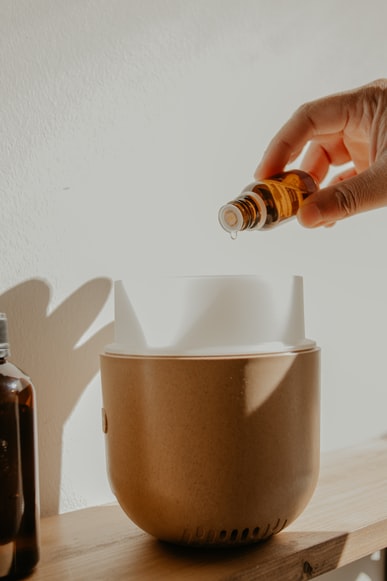Being stressed or anxious is not a rare feeling to have nowadays. They have been there since time immemorial but even since the pandemic broke out, the frequency and strength of stress have only increased. According to a study conducted by a Delhi-based preventive healthcare platform The Center of Healing (TCOH), 74% of Indians are suffering from stress and 88% from anxiety issues since COVID-19 hit India. Everyone’s mental health has indeed gone for a toss but the severity of rising issues of anxiety, be it moderate or extreme, is genuinely alarming. That is why I wanted to share some of the stress relief activities that are not only approved by me as an anxious person but also are backed by science.
Stress: What is it like?
Stress, as I would describe it, is a continuous feeling of exhaustion both mental and physical caused when one is overwhelmed with or cannot deal with emotional pressures. It is your body’s and your mind’s way of responding to the emotional strain.
We often use the term ‘stress‘ in the most casual ways to describe how we feel but in this way, we only trivialize the most serious aspects of it and the effects it causes to those who have it. Stress can be of two major types- Acute and Chronic. The former is when you are feeling pressurized emotionally and unable to express yourself daily and the latter is when you are living in a stressful situation with the suppressed feeling for a long time.
The chemical changes caused by stress result in some involuntary consequences including an increase in blood pressure, blood sugar and heart rate. The most common effects are nervousness, shaking, exhaustion, inability to sleep often turn into insomnia, mood swings, instability of emotions and sometimes stress can affect your hormones, if you are a woman, then your menstrual cycles could get affected. Sometimes severe hair fall and Irritable Bowel Syndrome (IBS) could also be the results of being stressed.
The reason for Stress
To address stress, we need to precisely scrutinize the reasons behind it. It could be caused by a traumatic experience or just a result of a flawed lifestyle. It could be personal or work-related, or both. It could also possibly be a repercussion of being in a toxic environment where you overburden yourself with irresolute emotions. Even being burnt out could be a reason, too. For instance, I am stressed all the time, or I should say most of the time because I am very self-critical. I judge myself way too much that sometimes I suffer from imposter syndrome. This leads to overtaxing myself and eventually being stressed and anxious.
Stress and Anxiety: How are They Related?
Coming to anxiety, well, being stressed doesn’t necessarily mean you are anxious too. Stress may or may not result in anxiety, but if you have anxiety, then it can be assumed that you are stress-ridden. Basically, all I am trying to say here is that stress and anxiety are related to each other, but it doesn’t establish a pattern of one of them being the result or reason for the other.
Anxiety involves intense, persistent worry and fear about everyday situations, manifesting in physical symptoms like a racing heart, rapid breathing, sweating, and fatigue. It’s a sense of apprehension, akin to nervousness, that can arise before significant events, crucial decisions, or public speaking. It often emerges when feeling behind schedule, leading to self-doubt and judgment, often a result of accumulated stress. If you’re struggling with overwhelming anxiety, consider exploring platforms like www.
Reasons to Choose Natural Ways to De-stress
Stress is not exactly as grave as it may sound. It is a part of our lives, and almost all of us deal with it. In the present-day scenario, stress is inevitable as it comes along with the chaotic lifestyle we have chosen for ourselves. We have the ability to treat stress ourselves in the early stage when the severity of it is mild to moderate.
There are many medical therapies, anti-depressants, and stress-relievers available in the market, which not only harm your body internally in the long run but also make you dependent on the medicines. Even if it is a mild mood swing, you’ll be reaching for medicines as you know they are going to work in a jiffy. But that is totally not how you should treat stress. Some simple changes in the lifestyle and a few adopted practices can make your life simpler and happier. No medicines can make you internally happy, which is the only guaranteed treatment for a stress-ridden person.
Science-backed Stress Relief Activities You Must Try
People often turn away from natural de-stress techniques because A) they don’t have much idea, B) they are sceptical of the results, and C) they think natural remedies take too long to show effects. Busting the myths around natural stress-relievers, I will share in this post 13 Stress Relief Activities backed by science.
1. Practice Mindfulness
In simple words, mindfulness is the process of being fully aware of what you are doing and feeling. It is synonymous with being present at the moment and living each second being exclusively attentive to and focused on things that you’re doing. Believe me, it is as easy as it sounds. One gets the hang of it when practised.
The Mayo Clinic says, “Practicing mindfulness involves breathing methods, guided imagery, and other practices to relax the body and mind and help reduce stress.” As true as it is, I believe we can practise mindfulness in each activity we do daily. For example- mindful eating is where you are completely focused on the food you eat and not on the surroundings, like the people who share the table with you or the TV show that you’re watching while eating; mindful journaling- is where you genuinely pay attention to your thoughts and ideas without being critical or judgemental of them.
We attain ultimate peace when our mind, body and soul are aligned correctly. Mindfulness is a process that ensures they are aligned. It awakens our senses and makes us realise the importance of each moment, each breath we take, and each work we do.
The next three points are how I practise mindfulness, which you can try too!
Chant a Mantra or Prayer
India is a land of spirituality. The Indians have been practising chanting mantras and hymns from the bygone era. Indian culture has a lot to do with creating a healthy lifestyle and positive atmosphere, which leads to eternal peace. Thus we can assume that the idea of chanting mantras had more reasons than just a religious practice. Chanting is one of the most powerful mindfulness exercises. Not only does it create a positive aura around you, but it also works best in accordance with the Law of Attraction.
It is scientifically proven that repetitive motions or sounds can soothe anxiety and distract you from environmental interruptions and negativity.

Meditation- One of the Most Popular Stress Relief Activities
The benefits of meditation are known to all. It helps us cope with stress and anxiety by calming down our senses. Meditation is the most popular and most celebrated way of practising mindfulness. It opens the window of self-exploration as it allows the mind to focus on what is happening within us and not on the external world. Meditation allows us to delve deeper into our soul and thus receive the vibrations that are hidden inside us. That is why meditation is considered one of the most rewarding methods to ensure physical and mental well-being.
You definitely don’t need to be an expert to start meditation. There are many tutorials on meditation all over the internet, but what works best for me is to close my eyes and think of the happy times, of a person who makes me happy, or of any god I worship. You won’t be able to focus in the first, but soon, you will get the hang of it. Make sure you meditate in an open space in the quietest hour of the day, preferably in the early morning. Pairing meditation with other relaxing practices, like Massage Therapy in Chesapeake, VA, can further enhance your journey toward mental clarity and physical relaxation, helping you achieve a more balanced state of well-being.
Conscious Breathing
Many of us do breathing exercises or ‘Pranayama’, but have you ever heard of breathing consciously? Well, if not, then keep reading. The term conscious breathing is quite self-explanatory. It means being completely aware of your breathing and taking control of it. Deep conscious breathing calms us down, reduces blood pressure, and relieves stress. It helps us balance our physical and mental health.
Inhaling and holding your breath for 20 seconds and then exhaling slowly is the key to deep breathing.
2. Keep a Gratitude Journal
Being grateful allows us to work on ourselves and improve. Counting your blessings every now and then and keeping a gratitude journal has been beneficial to many, including me. Every morning, listing down the things I am grateful for helps me get mental peace as I know how lucky I am, what has been given to me by the universe, and how I should use them to improve myself. A gratitude journal is just a place where you jot down your gratitude.
It is proven to improve your mental health, boost self-esteem, bring positivity, help relieve stress and calm you down. Regular practice of gratitude journaling will fill you with immense happiness and appreciation.
3. Doing Morning Pages
This is a term that might sound a little alien to many. I myself have started practising morning pages very recently. I got the idea from Lavendaire’s video. As I started doing it, I actually started loving the process. Basically, morning pages are a writing one or, as Lavendaire mentioned in her blog, three pages every morning. The writing should be spontaneous and not at all planned. In the morning pages, you dump all that has been going on in your head, all that has been making you hold back or making your heart heavy in a journal. It makes your mind a lot lighter and gives you vision and clarity in life. This is basically purposeless writing where you just empty your heart out on a piece of paper.

Morning pages might seem hard to do at first, but you must not stop writing, no matter how ridiculous it may be. Remember, you are writing for yourself and not for others to read. As you keep writing, you’ll get the hang of it, and then you’ll start to notice the change in your overall mental health.
You may start by writing the quote you saw the other day, or about how your yesterday went, to-do lists, prayers, gratitude, books you’re enjoying reading, TV shows or web series you loved etc. Basically, anything and everything. I’ll recommend you to watch the video on the Lavendaire channel. She has discussed this in detail.
4. Include Yoga in Daily Routine
According to Wikipedia, “Yoga is a group of physical, mental, and spiritual practices or disciplines that originated in ancient India, aimed at controlling and stilling the mind, and recognizing the detached ‘witness consciousness as untouched by the activities of the mind and mundane suffering.” Yoga is a century-old method of scientifically stretching your body, which is practised to target many physical and mental problems and simultaneously relax the mind and soul.
Practising yoga for at least 15-20 minutes daily will help you increase your fitness, calm you down, reduce neck tension, relieve soreness, and rejuvenate you. Regular practising Yoga will increase vitality and give clarity to your thoughts so that you have a clear vision of life.
5. Spend Time in the Sun
A lot of us have to spend most of our time confined in a small space for work. Even when we are not working, we hardly go out in nature. But, that is essential to keep up the balance and harmony between you and nature. We are made from nature, and it is obvious that nature has all the essentials to make us content and happy in-store. Such a thing is Vitamin D. We have learned in school about Vitamin D and how we can get it only from the Sun. Not only does it strengthen your bones or regulate your immunity, but it also helps with the neuromuscular functions that enable you to fight stress, anxiety, hypertension, sleeping disorders, depression, and other psychiatric problems.
Spending time in the Sun, definitely not in the scorching heat, but the mild Sun during the early period of the day with help you absorb the necessary Vitamin D, thus taking care of any deficiency. It will automatically uplift your mood, make you feel lighter, and give you a good night’s sleep.
6. Meet the People you Love
Our body works under different mysterious substances that are commonly called hormones. Not only do they regulate our bodily functions but also our emotions. Such a hormone is Cortisol. This hormone helps control many internal concerns like blood sugar levels, blood pressure, metabolism, inflammations, etc. There is an increase in cortisol levels when a person is going through a tough mental state, for example, anxiety. It is scientifically established that there is a significant reduction in cortisol levels when we meet our loved ones.
Another such hormone is Dopamine, popularly known as the ‘happy hormone’. When spiked, it makes you feel happy and content. Any pleasurable experience or delightful emotion can spike up the dopamine level, giving you comfort, which eventually becomes a stress reliever.
7. Stay Away from Social Media
In the current scenario, when most of us are homebound, our exposure to social media and screen time, in general, has increased dangerously. Too much addiction to the digital space eventually escalates the chaos of the mind and lessens the enthusiasm that is essential for a peaceful life. Days started with a small scroll through the social media handles the days started without that seem significantly less peaceful and productive. It overwhelms our minds and weighs down our thoughts. Also, this consumes a lot of our time and positive energy, making us procrastinate.
Staying away from social media, or what we call it these days, social media detox, once in a while, provides us with clarity in life, makes us focused, and helps us get all our work done in a timely and organized manner. Excessive screentime can cause stress, loss of sleep, and headaches. Turning away from the screen at least an hour before bedtime is recommended.
8. Laugh a little Harder
When it comes to relieving stress naturally, there is no better medicine than a dose of laughter. A hearty laugh has many benefits, like stimulating the organs like the heart and the lungs, stretching your muscles, and boosting endorphins released by the brain, which helps us deal with stress and anxiety.
I get my daily dose of laughter by watching funny animal videos on the internet.
9. Listening to Music
Those who are easily affected by overthinking and are overwhelmed with emotions know what music can do to pacify the senses. The right choice of music can help you calm and soothe yourself, which could be considered one of the best stress relief activities.
Exploring different genres, such as jazz, classical, lo-fi, indie, or even K-pop, can offer a refreshing escape from daily stressors. K-pop, with its catchy rhythms and meaningful lyrics, can lift your mood and provide a sense of connection. You may enjoy it so much that you want to pre order up and coming K-Pop music releases or exclusive merchandise to support your favorite artists. The variety in music choices can be a simple yet powerful way to maintain your emotional well-being.
Here is a playlist created by me that has songs that are meticulously handpicked for stress relief. I consider it to be one of the best Spotify playlists for anxiety.
10. Surround Yourself with Plants
Houseplants are not just to have a pretty corner in the house or to purify the air, they are anti-depressants too. You can lower your stress level just by looking at them. Research shows houseplants can reduce stress by 40 per cent, which is insane. It is more of a mental thing than a physical one. Living amidst plants tricks our minds into believing we live a slower, simpler life close to nature, instantly calming us down.

Some of the indoor plants you can consider having in your home or in your office are- Aloe Vera, Jade plant, Areca Palm, Peace Lily, Syngonium, Snake Plant, etc. These are some of the houseplants that cleanse the air and detoxify the space they are in.
11. Start Eating Healthy
Eating a healthy diet not only ensures your physical health but also your mental health. To fight the adverse effects of stress and anxiety, i.e., increased heart rate and blood pressure, a nutritious diet plays a huge role. Stress negatively impacts the functioning of the brain and the signals it sends. The brain needs nutrients to work properly, and those nutrients are derived only from a good diet.
Usually, eating junk food creates a subliminal guilty feeling, which indirectly affects your already amplified stress level. Eating homemade, clean food makes you feel good about yourself as if you are taking care of your body. This sense of satisfaction helps reduce the stress level. The increased blood pressure caused by stress can also be treated with food that helps regulate the blood flow in the body.
Daily consumption of greens, leafy vegetables, fruits, and nuts is helpful for health. Also, nutrients like omega-3 and vitamin E should be kept in your diet. Fibrous foods like cereals, vegetables, and yogurt also take care of the gut and psyche.
In addition to mindful eating, proper hydration and steering clear of harmful substances play an equally important role in managing stress. Drinking enough water throughout the day helps regulate the body’s systems, improves concentration, and supports energy levels, all of which reduce stress’s toll on the mind and body. Avoiding excess caffeine, alcohol, and recreational drugs is also crucial, as these can heighten anxiety, disrupt sleep, and interfere with your body’s natural ability to cope with challenges.
At times, however, persistent stress may be linked to more complex issues such as dual diagnosis, where mental health concerns coexist with substance use. In such cases, seeking professional support is a vital step toward recovery and long-term well-being, reminding us that true stress management often requires both self-care and external guidance.
12. Take a Stroll in the Nature
There is nothing like nature therapy to de-stress or unwind. A quick stroll in the park or a hike through the jungle helps reduce the stress level. This light cardio does not only work for your physical health but also helps release endorphins, which makes you feel better, reduces pain, and helps achieve a positive attitude. It also helps in lowering the level of cortisol also known as the stress hormone.
A walk in nature allows you to breathe properly, increases the intake of pure oxygen, and, at the same time, helps you distract your mind from your otherwise chaotic life. So, like many other stress relief activities mentioned here, it is also beneficial for both the mind and the body.
13. Aroma Therapy

Fragrances play an important role in relieving stress in our day-to-day lives. The significance of aroma in human psychological and physical health is increasing day by day and that is the reason why there is a considerable increase in the use of essential oils in medicinal as well as in cosmetic industries. The aromatic essential oils can reduce your cortisol levels, relax your senses, and help you sleep well. Here are a few of the essential oils that help you calm yourselves-
To treat insomnia or for relaxing- Lavender and Chamomile,
To lift up your mood- Lemon Essential Oil
To stimulate the mind and the body- Peppermint, Rosemary
To reduce fatigue, anxiety, agitation,n and nervousness- Bergamot, Thyme
To treat restlessness and promote good sleep- Ylang Ylang Essential Oil
So, these were the 13 easy stress relief activities that are science-approved and need to be incorporated into your lifestyle straight away. Stress is inescapable; what we can do is to know how we can deal with it, and we must make sure we are choosing the natural way to treat our stressed mind.
Don’t forget to let me know what you think about this post. How many of the above-mentioned activities do you follow. Comment with your favourite destressing methods. I’ll be back with another exciting post in a couple of days. Until then, have a great weekend ahead!



